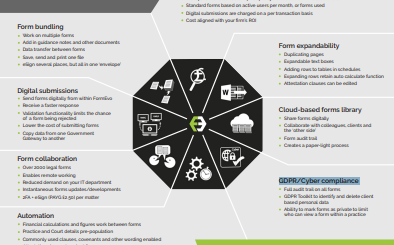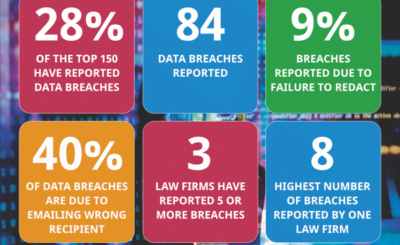Back to Basics – a business briefing for lawyers: Marketing made simple

Welcome to the latest edition of Back to Basics — a Business Briefing for Lawyers. This month the focus is on marketing—and it’s not just advertising that we’ll be talking about. Marketing touches every aspect of your firm. It starts with your ability to deliver to your clients what you say you’re going to deliver and ends with winning new business through a process of designing systems and methodologies that allow you to provide services that are fit for purpose and then telling the world at large about them.
Gone are the days when a solicitor could depend on having a “client for life”. There are very strong competitive forces out there—and the worrying thing for lawyers is that their competition is no longer just other lawyers, but other more commercially minded enterprises— and that’s before we even have to consider the impact of ABS! This edition will look at marketing as a tool to help you improve your business performance by ensuring that you’ve done the ground work and then proclaimed your capabilities to the world at large.
Marketing is not a “One-off” activity
The are many anecdotal stories of solicitors conducting a “Wills Campaign” and then declaring “It didn’t work for me”. Well, there’s a very clear difference between sending out a mass mailshot to a whole bunch of people who you believe are still clients and conducting a well thought out, structured and continuous campaign to ensure that those of your clients who might not have a Will think about making one—and those of your clients who do have a Will, review it on a regular basis.
Whatever else Marketing is, it is an activity that must be undertaken on a continuous basis—and that means that there is a need to ensure that it is properly resourced. I don’t mean by this spending a lot of money on expensive advertising. What I mean is that someone in the firm needs to take responsibility to ensure that whatever the firm does to design and promote its services , it is done, properly, professionally and, most importantly, continuously.
The four Ps of marketing—Product, Price, Place and Promotion apply just as much to the legal profession as they do to any other commercial organisation—with the P of Products being replaced with the S for Service. So, try this for a very quick exercise: Review the Services your firm provides, determine the Price at which you will provide those Services, decide where you want to Place your Services and then Promote them sensibly and continuously. You need to plan this carefully and engage with others in the firm to do this. And once you have your plan it’s not always necessary that a lawyer has to actually run it—some would say that it would be best if the lawyers weren’t involved in the aspect of running it at all!!
Don’t keep your services a secret
How often have you heard one of your clients say “I didn’t know you did that”. This is not unusual in the legal profession because lawyers are not particularly good at promoting their services to their clients. This also raises the question of who are your actual clients and who should you be promoting your services to.
The legal profession has a tendency to count as its clients those people for whom they’ve carried out a piece of work. So, if you bought or sold a house for someone, say, 5 years ago, it is likely that you still count that person as a client. As a result of some accident, rather than anything else, your “client” contacts you at the end of that 5 year period to say that he’d like to use you to sell his house—and that he’s using “Such and Such Estate Agent” to do the marketing. While you’re on the phone to the client taking his instructions he tells you that since the last time you met he’s made a Will through another solicitor (or, even worse, through a “Will Writer”), arranged the winding up of his mother’s estate through her solicitor even though he was the Executor, used a “no win, no fee” company to help him claim compensation for the accident he had 3 years ago and, then, remortgaged his home last year on the expiry of the fixed term mortgage that he had when you bought the house for him in the original transaction. When you tell him you also provide estate agency services the now infamous words “I didn’t know you do all of that!” are uttered! In this case, just think about the amount of business (and money) you’ve lost by failing to keep in touch with this client.
If your client was aware that you provided all of the services he needed over the years there is every likelihood that he would have used your services rather than going elsewhere. Don’t keep what you do a secret. Let your clients know the range of services your firm provides. Keep in touch with your clients on a regular basis. Don’t fall into the category of the “can’t be bothered”. It costs you far more to win a new client than to keep and continue to provide services to an existing client. Do this: work out what services your firm provides (yes, this is a good idea—some firms are not entirely clear what services they do actually provide), set them out in an easy to read format (either electronically or on paper) and devise a means of communicating them to your clients. It is absolutely essential that you are in touch with your clients on at least 2 occasions every year—3 is better but as a minimum you need to be in touch more than once. Make the effort—if you don’t, someone else will. If you can’t allocate the time to this, outsource it—but make sure that you do it in such a way that you retain control of the activity AND the cost—marketing has a tendency to run away with the budget if you let it. Finally, use whatever means possible at your disposal to market to your clients—electronic as well as paper—and best of all, a combination of the two. Solicitors have a “lead list” that commercial organisations would give their eye teeth for—you should use this to this maximum extent possible.
Simon says…..
I wrote an article for the LawWare Newsletter (Winter 2011) which took a cursory look at the current state of legal marketing in England, as they are further down the ABS line than we are, and noted the influx of professional marketing organisations entering the market using TV advertising to communicate with the target market and the Internet as a delivery base for the service, highlighting QualitySolicitors and Wigster as examples.
The approach of these professional marketeers is very different from that of legal firms themselves. The approach of Legal firms both north and south of the border is similar – either they know what they do and can communicate it, or, they don’t and don’t. I went on to develop a few points – Once the English marketing model is established – the marketing machine won’t stop; it learns, it develops, it gets better. Other suppliers come into the market, offering slightly different services, but at a better price point. And so the marketing machine gathers momentum and pace. Scotland will be regarded as just another target audience and the numbers will be crunched, the strategies written and executed. And remember – your ‘Client’ is someone else’s ‘Prospective Client’. The two examples of change I highlight are both Internet based.
The Internet is the medium of choice for demographics A1-3, B1-3 and C1’s to find potential new suppliers and services – these are the people that have any kind of disposable income. The sort of people firms should be trying to attract! Change is often powered by IT. It is usually delivered by IT. But it is rarely because of IT. Change occurs when someone wants to achieve an objective, understands how to achieve it and can convince others to back the objective.
None of these characteristics are ‘Legal’ – they are ‘Entrepreneurial’. So as well as being good legal analysts and good business managers; Partners of Law firms have to be Entrepreneurial too. So YOU might have to change, maybe develop new skills, maybe hone existing ones. This is not a bad thing; to develop oneself is an admirable personal aim. There are many books and courses that can help. Perhaps look at the CPD requirement in a slightly different shade of light – the personal development requirement is there for good reason and I think it is time that we all got better at this side of our roles.
We are here to; provide a service; different clients require a range of services to suit their needs, and so we must develop and adapt those services as our clients’ needs change or are changed, and, we must attract new clients. It’s up to us to secure the future of our organisations, especially so when the future changes faster than it ever did before. So for this new year I resolved to be a bit more entrepreneurial and I encourage you to be too, for your own good and your clients. Simon Greig is Sales Manager of LawWare Limited, Edinburgh. Contact Simon at simon@lawware.co.uk
It’s the little things that matter
Just saying “Thank you” to a client can reap huge rewards. As an absolute minimum, you should thank your client on your engagement and on completion of the transaction—and for goodness sake, don’t say “thank you” at the end of a case and at the same time try to ram further services down his throat! Leave a decent space between completion and the offer of any new services you can provide to the client—and always remember—if the client should happen refer someone else to you, you must thank the client for that referral.
Is social media the answer?
The Internet offers a fantastic opportunity for lawyers to communicate with their clients, no more so than through the use of social media. The Facebook and Twitter phenomena means that people are in touch with each other on a daily basis and by using blogs you can get your opinion out to the masses. Professional media sites like LinkedIn give business people the ability to make contacts and the old words like “networking” and “making friends” seem to have gone by the board. This is all very well—and it is good to use social media, blogging and other online tools to promote your business—but it pays to make sure that you are able to capitalise on the opportunities that this medium offers—and that you don’t ignore more traditional marketing routes. If you do engage with social media, please make sure that you do so professionally, respond to enquiries promptly and that your online presence is managed. Doing this will ensure that your services are being promoted continuously and in the right way. Stephen Moore of Moore Technology Limited is an expert in this field and his advice is that before embarking on any online strategy it pays to decide what you want to achieve, how you want to achieve it, how you keep it current and how you manage the resulting enquiries. Visit Stephen’s web site on www.moorelegaltechnology.co.uk
Contact us
Brian O’Neill LL.B MBA, Business Consultant, t. 01294 833220, m. 07855 838395, e. brian@drakemyre.co.uk
Simon Greig is Sales Manager of LawWare Limited, Edinburgh. Contact Simon on simon@lawware.co.uk








Recent Comments